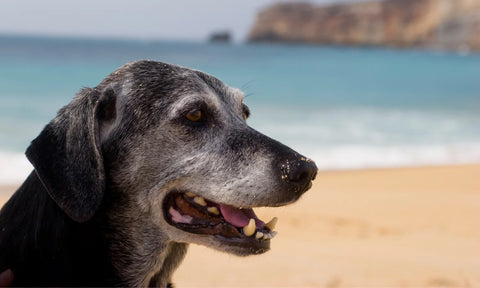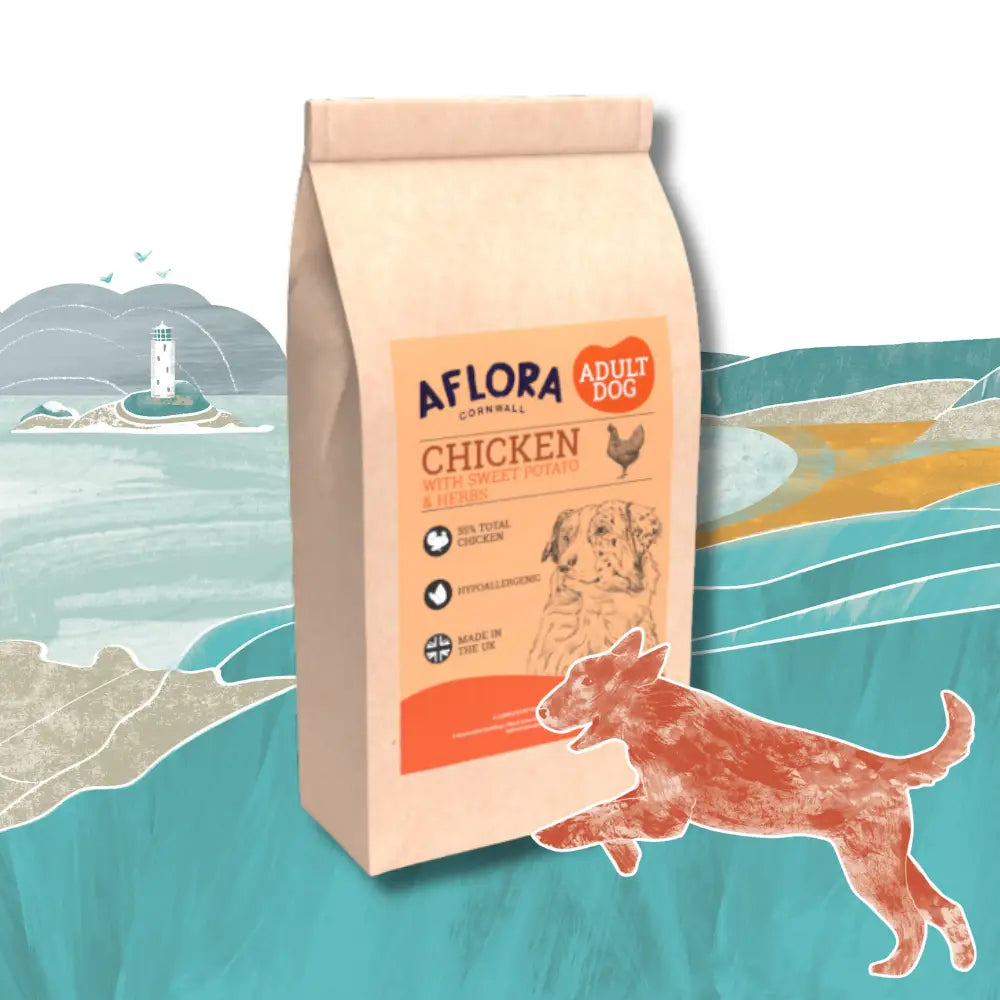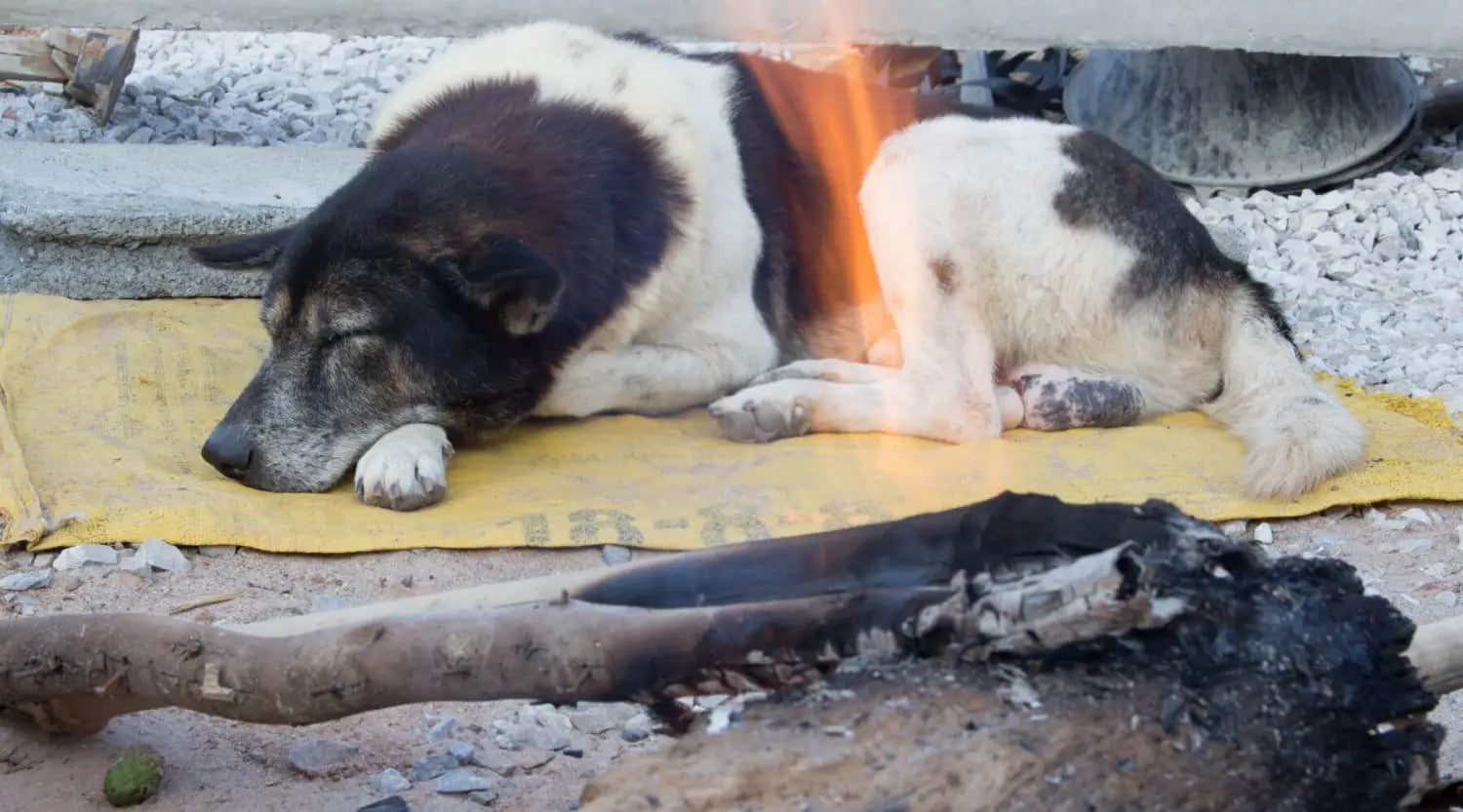Over the last few years, many of you will have welcomed a new dog or puppy into your homes due to the lockdowns and an increase in the time we spend at home. Some of you may have even been lucky enough to welcome a new canine companion over the Christmas period this year, marking a magical new year for you and your expanding family.
With so many of us welcoming new dogs into our lives and a lot of us being first-time dog owners, due to the pandemic, we think it's essential that everyone is well versed in looking out for signs that your furry friend is not feeling in tip-top condition.
Dogs don't have the ability to tell us when they aren't feeling well, but there are a plethora of behaviours and subtle signs that are easy to spot for any committed dog owner. As you get to know your dog better and better, these signs will become easier to notice as you will have an excellent idea of their usual behaviours and routines and will be able to pick up on those subtle changes that might show there is something not quite right.
In today’s post, we will be highlighting some of the most common signs of illness in your dogs and how to easily spot them.
If you are at all worried about any unusual behaviour in your dogs, we recommend talking to your vet as soon as possible, it's always better to be safe than to be sorry when it comes to the health of our fabulous furry friends.
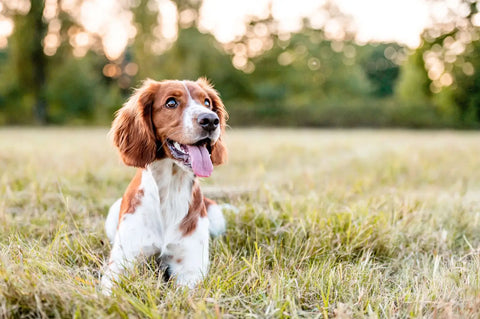
Seven Signs your Dog Might be Sick
Vomiting and Diarrhoea
The most common sign of illness in dogs and one of the easiest to spot is vomiting and diarrhoea. These symptoms can be caused by simple things such as ingesting foreign objects or a change to their diet, however, they can also be a sign of more serious illnesses such as bacterial infections or parvovirus in puppies. If your dog has had one episode of vomiting or diarrhoea and is acting normally it’s best to observe their behaviour closely and feed them bland foods when needed. More episodes in a 24 hour period would indicate a more serious problem and a vet should be called as soon as possible.
Increased and Decreased Urination
House-trained dogs will usually keep to their urination routine. Any changes to this can be a sign of problems. Other things to look out for are; strained urination, changes in volume and blood in the urine. Any of these symptoms would be a sign your dog is not 100%.
Changes in Appetite and Drinking Habits
Changes in the volume of food or water consumed or a lack of interest in food and drink can also be signs of issues. These are most serious when accompanied by signs of lethargy or nausea. The longer your dog experiences these problems the more likely other problems will occur so it is essential to get this checked out as soon as you notice any changes in your furry friends' appetite or drinking habits.
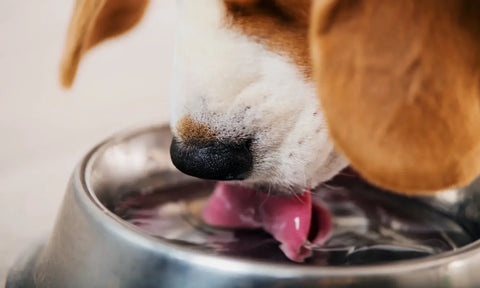
Itching, Scratching and Excessive Licking
Some of the most common ailments in dogs are skin conditions, accounting for a large proportion of vets visits every year. Common signs of these are an increase in your dog scratching, itching and licking themselves, as well as rubbing on furniture or carpets. The good news is that most of these conditions are easily treated with the help of a vet and a grain-free diet.
Browse our Grain-Free Dog Foods Here>
Coughing and Sneezing
As with us humans, coughing, sneezing and wheezing are all signs of respiratory problems in our canine companions. These symptoms can be signs of anything from simple ailments like a cold, to much more serious problems, such as heart failure, making it essential to arrange a vet visit as soon as you spot any of these problems in your dogs. If any of these symptoms are accompanied by a blue tint in the gums or tongue, it should be considered as a medical emergency and veterinary attention should be sought immediately.
Unexplained Weight Loss/Gain
This sign may take some time to be noticed, but any unexplained weight gain, or loss, is often a sign of illness and if your dog is experiencing either of these it should always be treated by a professional as soon as possible.
Behavioural Changes
As with us, any pain or discomfort in your dogs can lead to them becoming aggressive, irritable and withdrawn, some dogs may even take to hiding away in warm places to ease their suffering. Senior dogs can also experience senility, much like elderly people, forgetting simple commands, failing to recognise family members and getting generally confused. Any of these symptoms would be signs that your dog needs a visit to your vet, as they can help with cognitive issues as well as physical ones and will be able to guide you through this distressing time.
